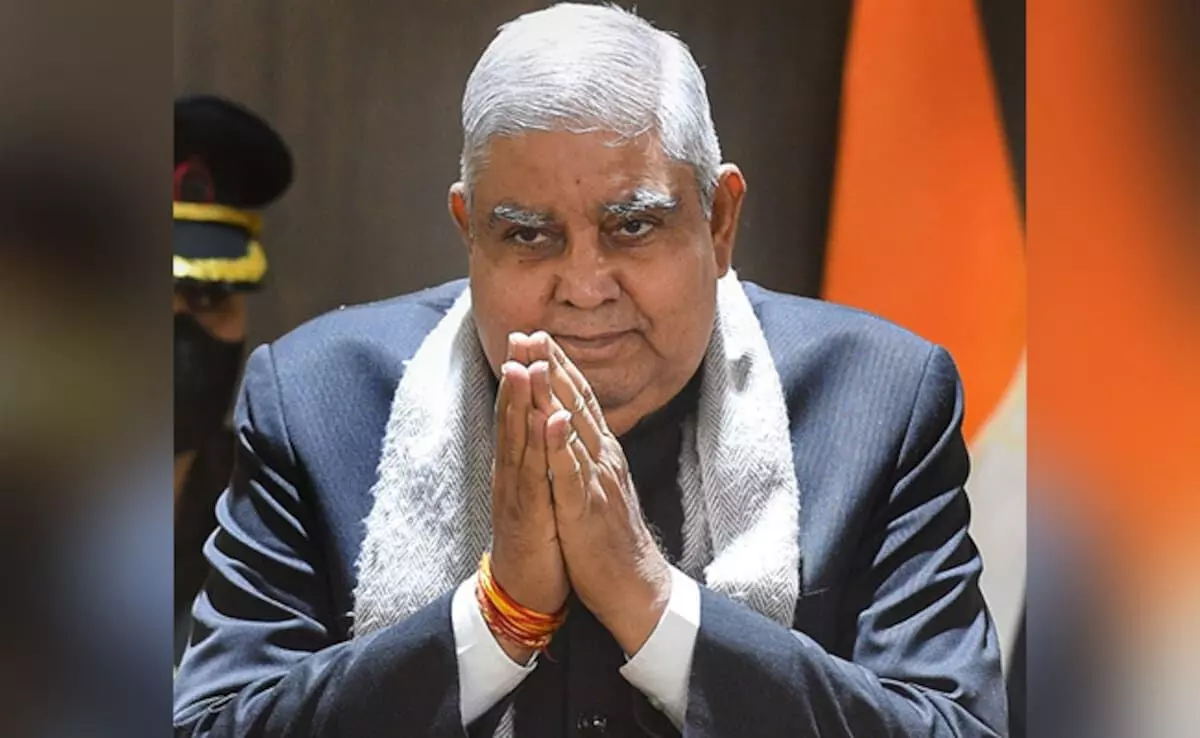The Unforeseen Resignation of Vice President Jagdeep Dhankhar: A Political Shakeup

On a seemingly ordinary Monday evening, India was rocked by the abrupt announcement of Vice President Jagdeep Dhankhar's resignation. This sudden decision, cited as a move to prioritize health care, raises numerous questions about the implications for Indian politics and governance. Resigning with immediate effect, Dhankhar's letter to President Droupadi Murmu cited medical reasons, but many in political circles are speculating about deeper undercurrents.
What Led to Dhankhar's Resignation?
Jagdeep Dhankhar, who took office in August 2022, was expected to fulfill a five-year term that would have concluded in 2027. His tenure was marked by several confrontations, particularly with opposition parties in the Rajya Sabha. In fact, he even faced an unprecedented motion for removal, the first of its kind for a sitting Vice President in independent India. The timing of his resignation, coinciding with the first day of the Monsoon session of Parliament, adds another layer of intrigue.
Many observers are skeptical about the health explanation offered for his resignation. While it is true that Dhankhar underwent a cardiac procedure earlier this year, his public appearances had not indicated any significant decline in health. In fact, on the day of his resignation, he appeared to be in good spirits, actively participating in parliamentary discussions. This disconnect between his public demeanor and the stated reasons for his resignation has fueled speculation that other factors may be at play.
The Political Implications
The ruling BJP-led National Democratic Alliance (NDA) now faces the challenging task of finding a suitable successor. With a wealth of potential candidates, including seasoned governors and experienced organizational leaders, the party is expected to deliberate carefully in the coming days. The question of who will fill this vital role is paramount, as the Vice President also serves as the ex-officio Chair of the Rajya Sabha.
Some notable names being considered include Rajya Sabha Deputy Chairman Harivansh, who has built a reputation as a reliable figure within the party. The government’s choice will likely hinge on finding a candidate who is both capable and perceived as non-controversial, as indicated by a senior BJP leader's comments.
Speculations and Reactions
The sudden nature of Dhankhar's resignation has sparked a flurry of responses from various political figures. Congress General Secretary Jairam Ramesh described the move as "shocking and inexplicable," implying that there may be more to the story than meets the eye. Some analysts suggest that Dhankhar's resignation could have been influenced by internal party dynamics or external pressures from opposition parties.
Moreover, Dhankhar's exit marks him as one of a few Vice Presidents in Indian history to resign before completing a full term. This adds a historical dimension to an already complex political narrative, as it invites comparisons to past Vice Presidents who have left office under various circumstances.
What Lies Ahead for the Vice Presidency?
As the NDA prepares to select a new Vice President, there are numerous questions about the implications for governance and political stability in India. The Constitution does not specify a caretaker for the role in the event of a vacancy, which could lead to uncertainty in the short term. Furthermore, the dynamics of the Rajya Sabha could shift, depending on who is appointed to fill Dhankhar's shoes.
In conclusion, Jagdeep Dhankhar's resignation is more than just a personal health decision; it is a political event that could reshape the landscape of Indian governance. As we await the NDA's choice for his successor, the ramifications of this sudden exit will undoubtedly resonate throughout the halls of power in India for some time to come.
